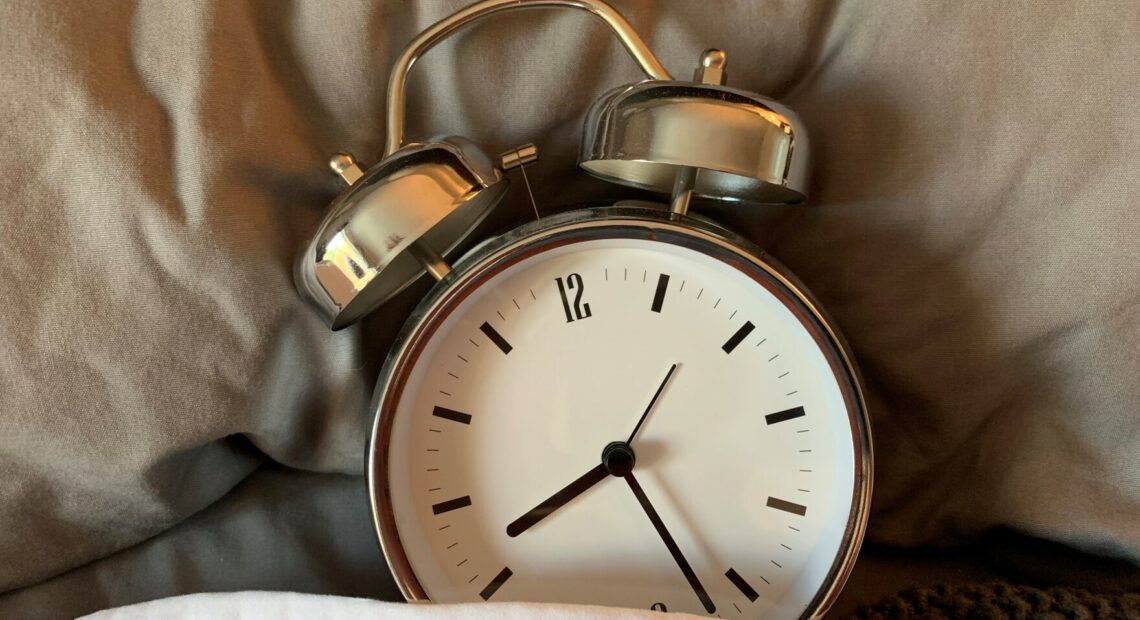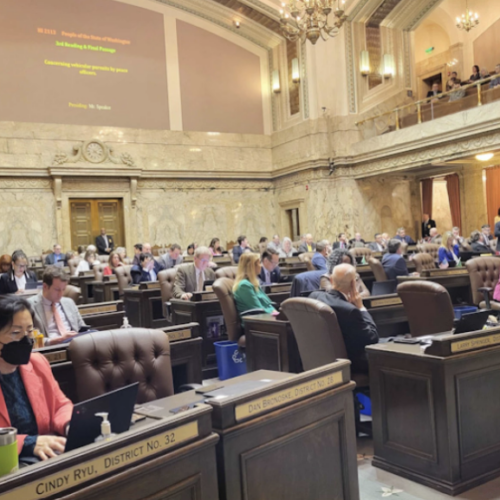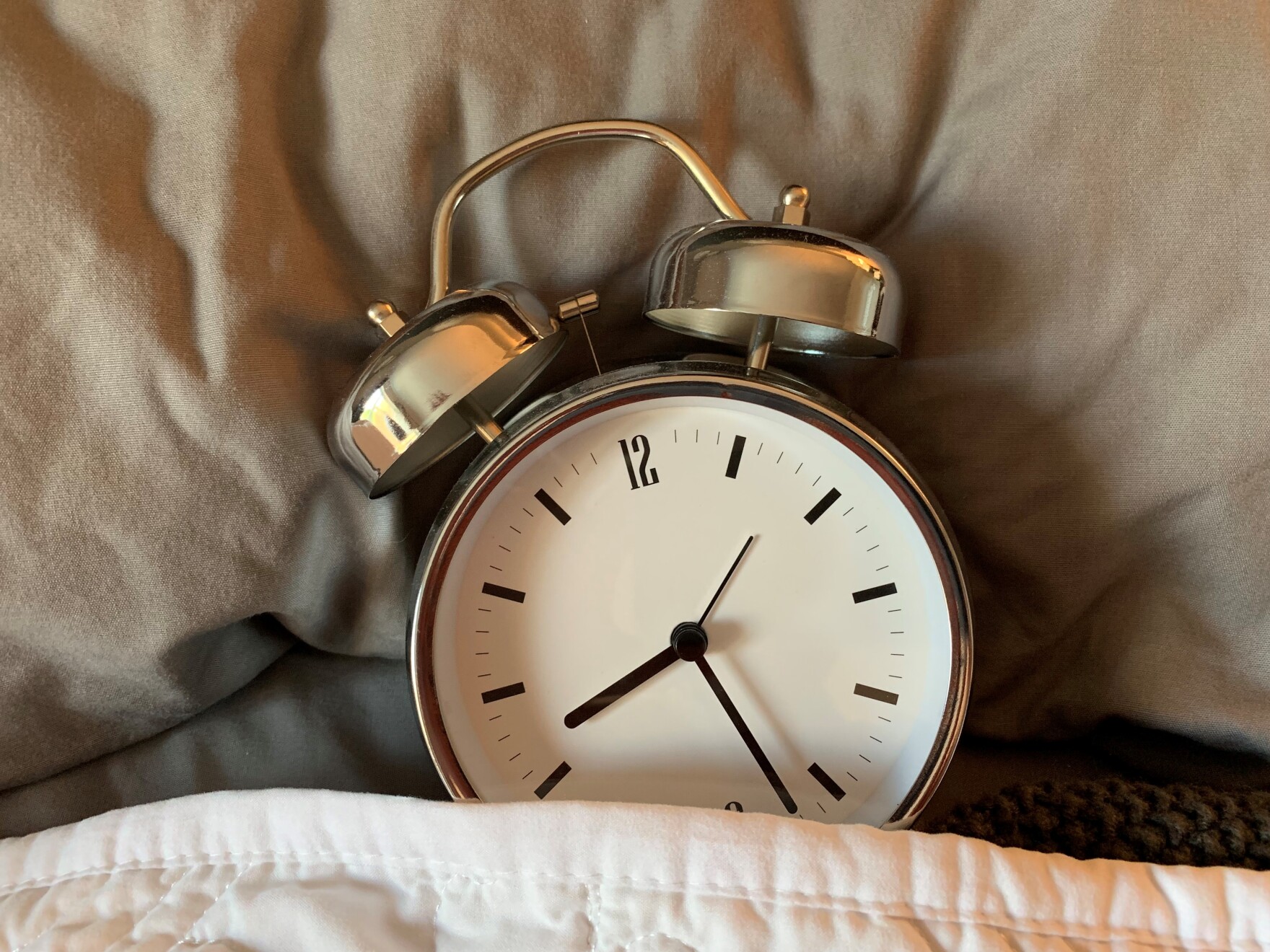
Washington State Lawmakers Propose Year-Round Standard Time To Get Around Congress
Read
Washington state senators are trying a new gambit to stop the twice-yearly ritual of changing our clocks from standard time to daylight time and back again. A previous effort to move the whole West Coast onto permanent daylight saving time failed to win requisite congressional support. So now, a bipartisan group of state lawmakers is pushing for Pacific Standard Time to be observed year-round.
Ending the practice of springing forward and falling back by sticking to standard time would mean less light in the evening in summer and earlier sunrises. In winter, the timing of daylight and darkness would stay the same as now.
The lead sponsor in the Legislature, Yakima Valley Republican state Sen. Jim Honeyford, said he would prefer to lock the clock onto Pacific Daylight Time. But in the meantime, he proposed to stay on standard time “until Congress should act.”
“Every time we change the time twice a year, students don’t do as well on their tests at least for a week afterwards,” Honeyford told his fellow lawmakers during a virtual public hearing Wednesday. “There are more heart attacks and other illnesses in the weeks following the changes and more auto accidents.”
In 2019, the Oregon and Washington legislatures voted to observe daylight saving time year-round. British Columbia’s government subsequently announced it was prepared to follow suit to stay in alignment with its U.S. West Coast neighbors. Two years ago, the Idaho Legislature voted to link the northern portion of Idaho, which follows Pacific Time, to whatever time observance that Washington state follows.
But the coordinated movement to abolish the biannual time change is dependent on Congress, which is biding its time. Congress needs to get involved because while states can adopt year-round standard time, the federal Uniform Time Act does not currently allow for year-round daylight saving time.
At the initial hearing on Honeyford’s proposal in front of the Washington Senate State Government Committee, several people testified that permanent standard time was a superior solution compared to permanent daylight saving time anyway.
“Permanent standard time is federally pre-approved. It’s the same thing that Arizona, Hawaii and all the (U.S.) territories have,” said Jay Pea, a former software engineer in San Francisco who founded a nonprofit named Save Standard Time. “It’s the natural time defined by the sun.”
“Standard time is much better than permanent daylight savings time,” agreed University of Washington Professor Horacio de la Iglesia, who researches sleep and circadian rhythms.
de la Iglesia said the late onset of sunlight on winter mornings under permanent daylight saving time would be “particularly detrimental” for young people attending school.
A trio of Washington labor unions also signed on in support of the new effort to ditch the time switch. The political director for IBEW Local 191, which represents electricians, John Traynor, said health and safety concerns motivated his union to weigh in, though they were not taking sides on the PST vs. PDT detail.
“It’s extremely disruptive to work and sleep schedules,” Traynor said in an interview. “It’s just time for it to go.”
In 2019, Oregon and Washington legislators said the feedback they got from constituents ran strongly in favor of following daylight saving time constantly rather than setting the clocks to standard time. National polling has shown less public consensus on which year-round time to observe.
Whether or not the Washington Legislature proceeds with the permanent standard time proposal, it wouldn’t take effect in time to avoid the next clock change on March 13. Senate State Government Committee Chair Sam Hunt, a Democrat from Olympia, did not indicate when he might bring Honeyford’s bill up for a vote.
Related Stories:

Washington police pursuit rules to change after Legislature adopts 3 voter initiatives
By: Jeanie Lindsay, Northwest News Network After hours of public speeches, the Washington Legislature decided Monday to once again make changes to the state rules around police car chases. Lawmakers

Here’s why WA Democrats passed 3 Republican-backed voter initiatives
By: Jeanie Lindsay / NW News Network A majority of lawmakers in the Washington Legislature decided Monday to approve three voter initiatives, after weeks of uncertainty and plenty of tense

Agricultural overtime law still causing controversy
Farmworkers, farmers and advocates gathered at two events – all working to get lawmakers’ attention about the agriculture overtime law. An annual tribunal defended farmworkers’ rights and the overtime law. A separate rally focused on the negative impacts of it.
















